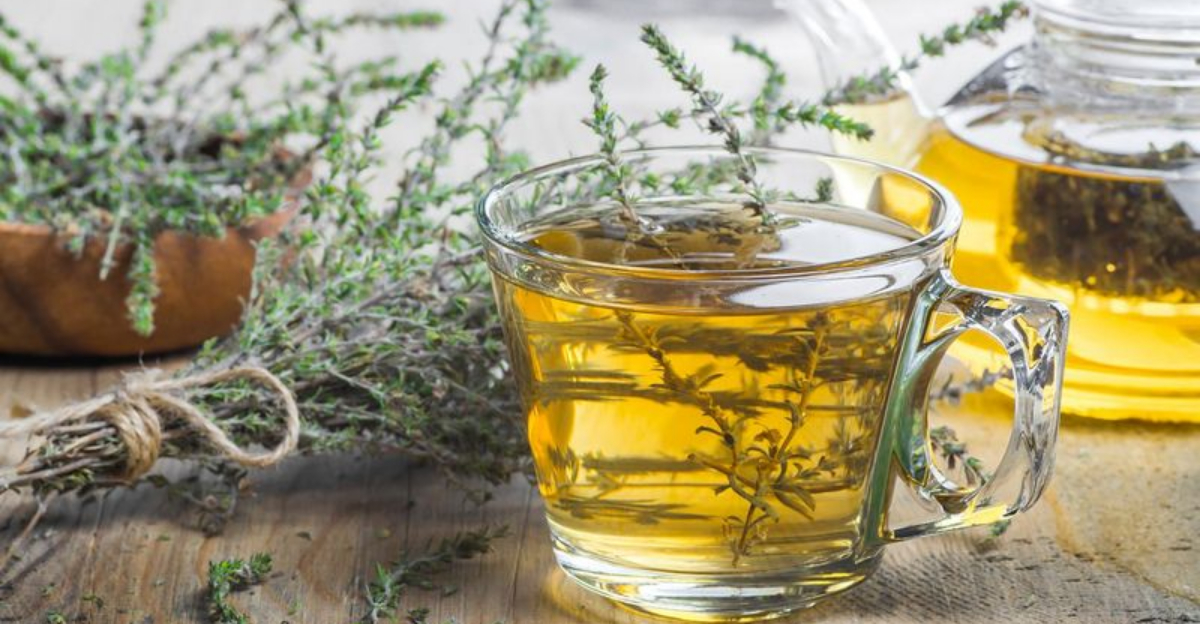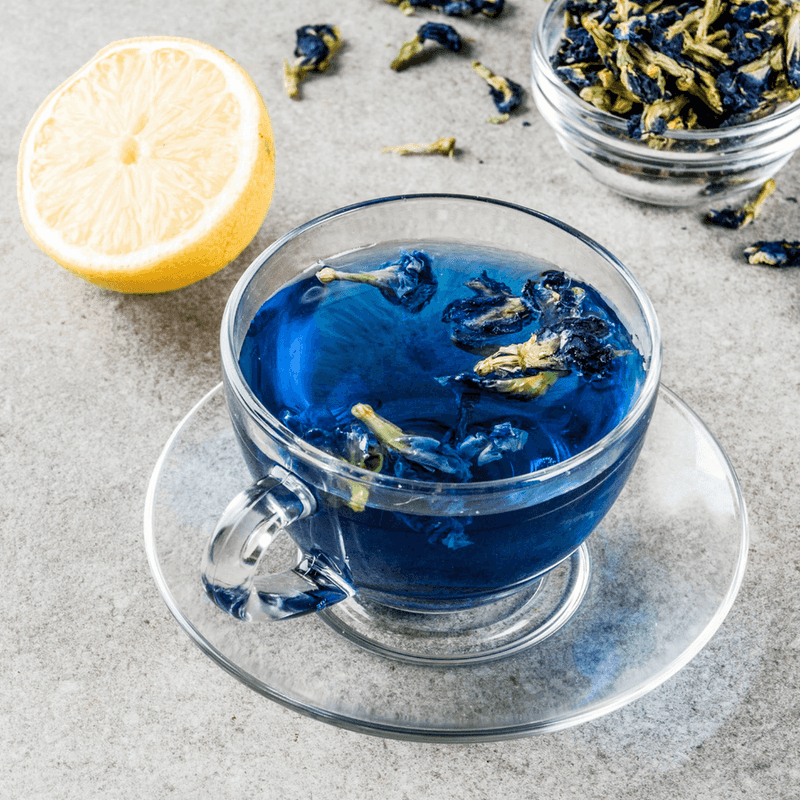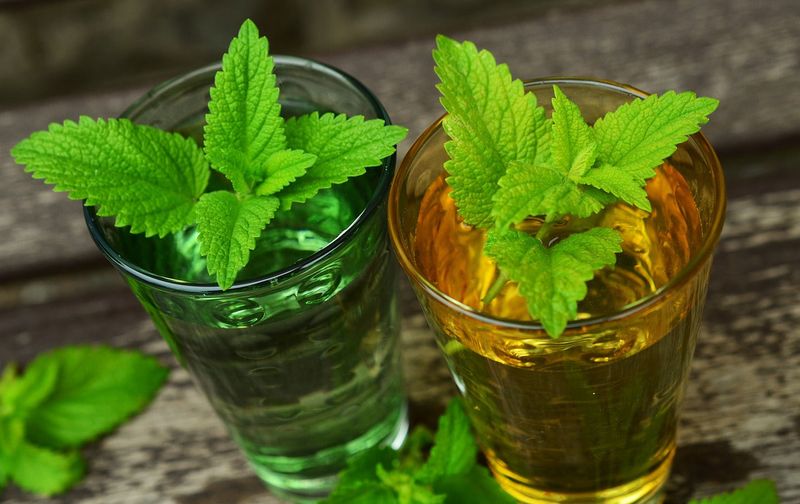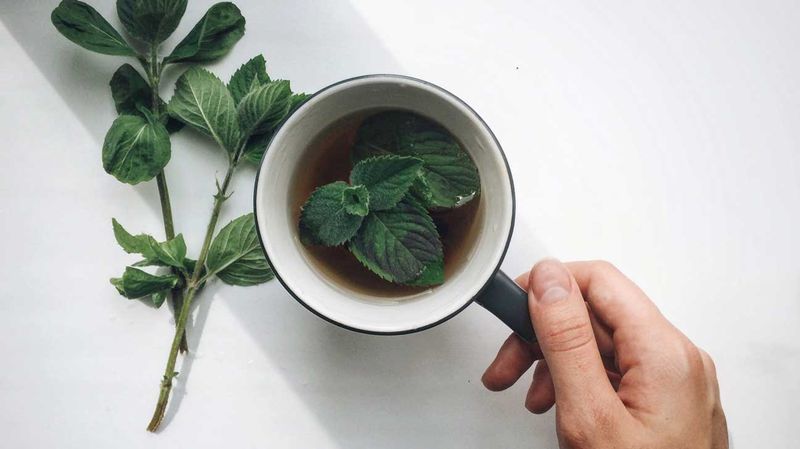If you love tea and want to boost its wellness benefits, growing your own medicinal plants is a fantastic choice.
Not only do these plants enhance your garden with their beauty and fragrance, but they also offer natural healing properties when brewed into tea. Here are 13 must-grow medicinal plants that every tea lover will appreciate.
1. Yarrow
Yarrow is a fascinating addition to any herbal tea garden. Known for its feathery leaves and clusters of small flowers, it provides both aesthetic beauty and medicinal benefits.
Traditionally used to treat colds and fevers, yarrow can be brewed into a soothing tea that helps reduce inflammation and supports the immune system.
Its slightly bitter taste pairs well with sweeter herbs, creating a balanced flavor profile. Yarrow thrives in well-drained soil and full sun, making it an easy plant to grow at home. Harvest the flowers and leaves during the blooming season for the best flavor.
2. Cat’s Claw
Cat’s Claw, a vine native to the Amazon rainforest, offers unique healing properties. Recognized for its sharp thorns resembling a cat’s claw, this plant is renowned for its anti-inflammatory and immune-boosting effects.
Steeping the bark in hot water creates a potent tea that may alleviate arthritis symptoms and enhance overall well-being.
To cultivate Cat’s Claw, provide a sturdy support for its climbing nature and a warm, humid environment. Despite its exotic origin, it adapts well to home gardens with care. Enjoy the benefits of this intriguing plant in your tea blends.
3. Butterfly Pea
Butterfly Pea is a striking plant that transforms tea with its rich blue hue. Originating from Southeast Asia, its flowers are not only visually captivating but also known for their antioxidant properties.
When infused, the tea changes color with the addition of acidic ingredients like lemon, making it a fun and interactive experience.
Butterfly Pea thrives in warm climates and can be grown in pots or garden beds. Regular watering and ample sunlight ensure healthy growth. As a versatile ingredient, it enhances both herbal and traditional teas with its color and health benefits.
4. Hibiscus
Hibiscus tea is celebrated for its tart flavor and numerous health benefits, including supporting heart health and reducing blood pressure. The large, colorful flowers make it a stunning garden feature.
Hibiscus thrives in warm climates and needs well-draining soil with regular watering. It enjoys full sun but can tolerate partial shade. Prune to encourage new growth.
To prepare tea, steep the dried petals in hot water. The resulting ruby-red infusion is not only delicious but also a visually striking drink, perfect for refreshing summer sips.
5. Rosemary
Rosemary is not just for cooking; it makes a delightful tea with numerous health benefits. Known for boosting memory and concentration, rosemary tea is perfect during study sessions.
Grow rosemary in a sunny spot with well-drained soil. It’s drought-tolerant and requires minimal care, making it ideal for beginners. Regular pruning encourages new growth.
To prepare tea, steep a few sprigs in hot water. The aromatic brew is not only invigorating but also packed with antioxidants, making it a healthy choice for tea enthusiasts.
6. Lemon Balm
Lemon balm offers a citrusy twist to herbal teas. Known for reducing anxiety and promoting sleep, it’s a great addition to your herbal collection. The plant’s fragrant leaves attract beneficial insects.
Lemon balm thrives in sunny areas with rich soil. It requires regular watering to maintain its lush growth. Pruning helps keep the plant tidy and productive.
Brew a cup by steeping freshly plucked leaves in boiling water. This soothing tea is not only refreshing but also a natural remedy for stress and insomnia.
7. Lavender
Lavender tea is cherished for its floral aroma and calming effects. It’s a fantastic choice for those seeking relaxation and relief from anxiety. Lavender’s vibrant purple flowers are as beautiful as they are beneficial.
This plant flourishes in well-drained soil and sunny spots. Ensure it has enough room to spread, as it can grow quite large. Prune regularly to maintain its shape.
Harvest the flowers when they are fully open. Steeping them yields a fragrant tea that transports you to a tranquil meadow, soothing both mind and body.
8. Holy Basil
Holy basil, or Tulsi, is revered in Ayurvedic medicine for its health-promoting properties. Its tea is known to reduce stress and enhance mental clarity. The plant’s aromatic leaves are both medicinal and culinary delights.
Plant holy basil in a sunny location with fertile soil. It requires regular watering to maintain its lush growth. Pinching the tops encourages bushiness.
To make tea, steep a handful of fresh leaves in hot water. This flavorful brew not only refreshes but also supports overall wellness, making it a staple in herbal tea collections.
9. Echinacea
Echinacea, often used to boost immunity, is a vibrant addition to any garden. Its tea is a popular choice during cold and flu season. The daisy-like flowers add a splash of color to your tea garden.
Plant echinacea in a sunny location with well-draining soil. It requires minimal maintenance and is drought-resistant. Regular deadheading promotes continuous blooms.
For tea, use both flowers and leaves. Steep them in boiling water to enjoy a healthful drink that supports immune health, keeping you resilient through the seasons.
10. Sage
Sage tea is renowned for its earthy flavor and medicinal properties. It’s often used to soothe sore throats and improve digestion. The plant’s grey-green leaves are a subtle beauty in any garden.
Sage prefers a sunny spot and well-drained soil. It’s a hardy plant that can withstand various conditions, making it easy to cultivate. Regular pruning keeps it healthy and bushy.
Brew a savory tea by steeping a handful of fresh leaves in hot water. This warming beverage is perfect for cooler days and comforting sips.
11. Peppermint
Peppermint is a refreshing herb that invigorates both the mind and body. Its tea is perfect for digestion and relieving headaches. The aromatic leaves make it a garden staple.
Plant peppermint in a container to prevent it from spreading uncontrollably. It prospers in both full sun and partial shade. Regular trimming encourages bushy growth.
To brew, pick fresh leaves and steep them in hot water. The result is a minty, invigorating drink that can be enjoyed hot or cold, perfect for any season.
12. Thyme
Thyme is a versatile herb known for its culinary and medicinal uses. Thyme tea is beneficial for respiratory issues and boosting immunity. The plant’s small, fragrant leaves are a charming addition to any garden.
Grow thyme in a sunny spot with well-draining soil. It’s drought-resistant and ideal for container gardens. Regular harvesting encourages fresh growth.
To brew, steep a few sprigs in boiling water. The resulting tea is aromatic and soothing, offering a natural remedy for coughs and colds, making it a handy addition to your herbal toolkit.
13. Chamomile
Chamomile is a beloved medicinal plant known for its calming properties. A cup of chamomile tea can ease stress and aid in better sleep. The flowers resemble tiny daisies, adding a charming touch to your garden.
To grow chamomile, select a sunny spot and well-drained soil. Regular watering is key, but avoid overwatering. As a hardy plant, it thrives even in less-than-perfect conditions.
Harvest the flowers at full bloom for the best flavor. Once dried, they are ready to steep into a soothing tea, ideal for unwinding after a long day.













